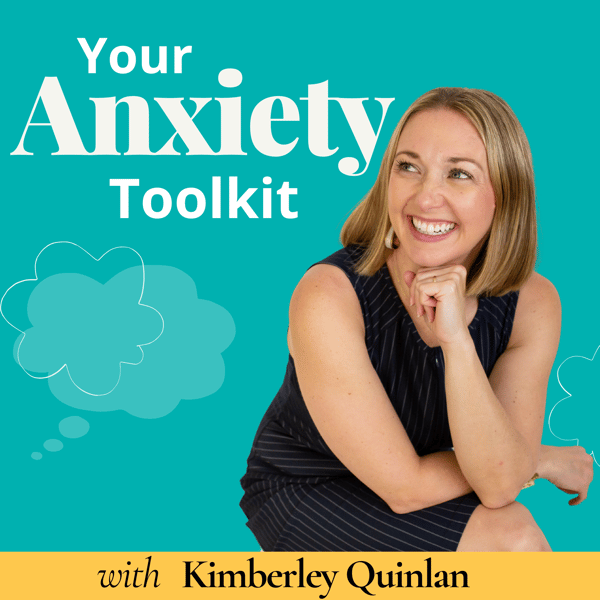417 How to Fall Asleep (with OCD and Anxiety)
Your Anxiety Toolkit - Anxiety & OCD Strategies for Everyday
Kimberley Quinlan, LMFT | Anxiety & OCD Specialist
4.9 • 802 Ratings
🗓️ 13 January 2025
⏱️ 44 minutes
🧾️ Download transcript
Summary
In this episode, Kimberley Quinlan and Sue Chuddy dive into practical strategies for managing OCD and anxiety-related sleep disturbances, offering actionable tools to help you reclaim restful nights.
Transcript
Click on a timestamp to play from that location
| 0:00.0 | Welcome, everybody. I am so excited for this episode. Today we are talking about how to fall asleep with OCD and anxiety. We have the amazing Sue Chuddy here because she is going to spread her wisdom. I am so thrilled to have you because this is such an important topic. Thank you for being here, Sue. |
| 0:22.5 | Yes. I'm so glad to be here. Thank you so much for having me. |
| 0:26.7 | It's often in sessions, some of the biggest conversations I have with clients, because we need sleep to function well. |
| 0:36.3 | And sometimes anxiety can prevent us from that one thing. |
| 0:40.0 | So can you right off the bat explain the relationship between OCD and specific and some sleep |
| 0:47.9 | disturbances that people have? |
| 0:49.9 | Absolutely. |
| 0:51.6 | Yeah, there's, depending on what source you're looking at, it's probably somewhere |
| 0:56.2 | between 40 to 70% of people with OCD are experiencing some kind of sleep disturbance. |
| 1:02.2 | So, like, this is, like, huge. And there's a lot of reasons why that's happening. Like, |
| 1:08.3 | people go to sleep and OCD is, or they try to go to sleep. They're in |
| 1:12.8 | their bed and OCD is like, yes. This is like the perfect time to process everything. And so in |
| 1:21.7 | addition to that, like it's a hot time for people to be engaging in rituals as well. So like there's a lot going on when we're going |
| 1:30.5 | to sleep. One of the things is fewer distractions, right? Like we are at school or going to work or with |
| 1:38.5 | our families or doing like these social activities and our minds are occupied and it leaves less room for intrusive thoughts. |
| 1:46.5 | And then we go to bed. And so at night, the environment is quieter. There's these fewer distractions |
| 1:51.0 | and it allows obsessive thoughts to surface more prominently. And then we're tired. We're tired. |
| 1:59.7 | So the increased fatigue can reduce like your brain's ability to manage the stress and manage the intrusive thoughts. |
| 2:07.3 | So it's it kind of feels like we have a lower like impulse control at night. |
| 2:14.1 | So it's easier to engage in the compulsions and harder to resist the compulsive behaviors. |
| 2:20.3 | Yeah. A lot of rumination goes on at night. That's been my personal experience. Like that is when I |
| 2:28.8 | decide to solve like all of my life's problems. Right. It's like, you know, 11 o'clock at night. I want to be going to |
... |
Please login to see the full transcript.
Disclaimer: The podcast and artwork embedded on this page are from Kimberley Quinlan, LMFT | Anxiety & OCD Specialist, and are the property of its owner and not affiliated with or endorsed by Tapesearch.
Generated transcripts are the property of Kimberley Quinlan, LMFT | Anxiety & OCD Specialist and are distributed freely under the Fair Use doctrine. Transcripts generated by Tapesearch are not guaranteed to be accurate.
Copyright © Tapesearch 2025.

